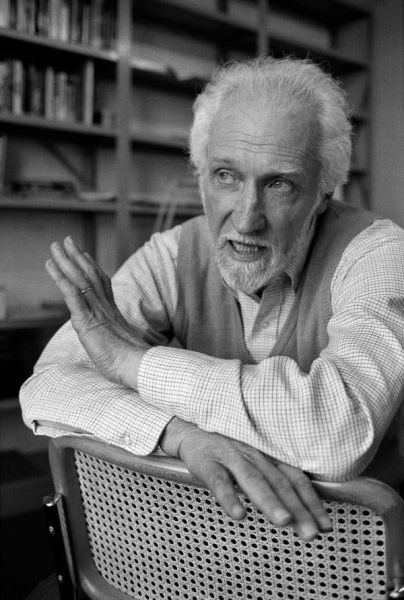The Role of Wealth
The Long Hard Road to Wealth
Most of the people who supported Bernie Sanders's election-bid have little sense about the creation and administration of wealth. They have had wealth for so long, they take its existence for granted. But somebody has to create it, an event like a Big Bang. Someone has to cause wealth to happen in a society and maintain its rumbling bigness through the lean times. Most Americans forget that an intentional act caused the Big Bang, or do they doubt it ever happened? As far as they're concerned, maybe greed and racism created the disparity between our nation and other nations.
Rarely can nations create wealth from nothing within a single generation. Wealth grows as capital. It has to build on itself cumulatively and, with luck and time, enable prosperity; but generations of people may live and die before it reaches its fullest potential. American wealth has endured wars, economic downturns, and natural disasters. Yet it has more investment capital than it has ever had. And we could squandor the entire thing in less than five years. I have seen the collapse of fortunes among my own contemporaries, so I know how quickly it can happen. Our nation can go the same route. All it needs is a succession of false steps. The steps may have humanitarian intentions, but a totally negative effect.
Perhaps the first insight about human-kind, to jump-start the search for improved functionality, is to acknowledge the primary, or primal, forces that motivate people, and to contour the society to take advantage of those forces:
1. Life is a substained hunt, and we are all players in that hunt. In that light, we should consider the words of Dr. Alan Grant (Sam Neill) in Steven Spielberg's blockbuster movie Jurassic Park: "T-Rex doesn't want to be fed. He wants to hunt."
When I was in the livestock-feed business, I remember cattlemen talking about how to take care of a bull. You don't keep him in a pen too long. The restraints will make him constipated and impotent; so let him roam freely to maintain his vitality.
2. Human-kind is acquisitive. A society will fail because if it doesn't take this fundamental insight into account. People like jewelry, expensive gadgets, sailboats, and lots of other toys. They like nice homes. They like them so much, they may buy two or three extra homes, if they've got the money, so they don't have to stay in hotels or a trailer park. The poorer a person's origins, the more he likes the toys.
To divert mankind's primal urges into productive channels, someone invented money, which allows people to buy the things they eat, instead of personally killing them. Money creates a alternative to looting and plunder. You don't kill people and steal their belongings; you work a wage-paying job and buy what you need in shops. As mankind has evolved, the image of a portly rich guy in a castle, sitting on piles of gold and silver, has transitioned into the modern image of a man conferring with his wealth-management team to manage a diversified portfolio.
Think of acquisitive man in the light of TV shows that focus on acquisition: Storage-Wars, Pawn-Stars, and "Antiques Roadshow." Thanks to the modern way of acquiring things, almost anyone can buy a sailboat or a Mercedes. All they have to do is pay for it. He doesn't even have to pay cash, if he can finance it with a loan.
3. Mankind wants to be the best at whatever he does, not equal to everyone else. Let equality be for losers. People constantly grade their own exploits by the exploits of others. No matter what anyone says, it matters very much to Jeff Bezos, Warren Buffet, and Bill Gates which person tops the chart as the richest man in the world. They may vote Democrat, but they care very much about who makes the most money. Most people keep score.
Peter Biskind relates the following conversation between Steven Spielberg and John Travolta in his book Easy Riders, Raging Bulls:
At Robin Willams' s fortieth birthday party in Napa (California's wine capital), Steven and Kate Spielberg were hanging around with John Travolta, Kirstie Alley, and a few others. . . . Somebody asked, "So John, you flew your own plane up here? What kind?"
"A Learjet."
"Steven broke in, "Oh, yeah, a Learjet. Do you have the kind where you can just walk in, or do you have to duck your head."
"You have to duck your head," replied Travolta.
"Steven turned to Kate and said, "We don't have to duck our heads on ours, do we?" It wasn't meant as Learjet one-upsmanship, but that's what it was.
This insight leads to my fourth point:
4. Mankind is competitive. Prehistoric man competed by killing or intimidating his rivals. He had the most children to ensure that a few would survive predation. He organized a band to make hunts more successful, and he probably brought home human trophies to show off to his friends. We call such men today Alpha-males.
Julius Caesar, Süleyman the Magnificent, Adolf Hitler, and others judged their accomplishments by who killed the most number of people; and like their prehistoric predecessors, they often kept a few victims alive and brought them home as trophies. Caesar once stood before the statue of Alexander the Great, who had conquered most of the known-world before he was thirty, and lamented that he hadn't even conquered the entire European continent. So Caesar reveals irrevocably that a conquerer itches with jealousy if other people overshadow his achievements; but the human cost in death and disrupted societies precludes that conquerer-mentality as a social ideal.
The economic system that best utilizes the competitive-edge in people and wish to acquire things is a free-market economy. The average entrepreneur slays other businesses not people; and he tries to top the previous year's net-profits—in dollars, not corpse-piles. He fills warehouses with inventory, not war-booty, and he pays better, since his employees are free people, not serfs or feudal tenants. They are also customers. Entrepreneurism requires intelligence and a person in touch with primordial instinct.
A free-market economy utilizes immutable human traits. It channels those traits into a constructive, collective effort that builds rather than destroys. History has proven the superiority of a free-market economy. One has to wonder why it encounters so much hostility and resentment. Much of the left-wing of the Democratic Party has marked it for destruction. The free-market has succeeded so well, one has to wonder if the Left has given us all the information to explain why they feel so negatively toward it.
The Principle versus the Practical
Dozens of books over the last twenty years have condemned capitalism for its threat to democratic institutions, and the Republican Party for its advocacy of capitalism; but Democracy Inc. by the late Sheldon Wolin, a former political-scientist at Princeton University, stands out for its moral disdain toward American capitalism and its contempt for capitalist greed as the concomitant to sexism and racial prejudice. His denunciation, in such personal terms, may remind readers of an evangelical church minister railing at bar-owners or at noisy drunks. Wolin expresses the same moralistic bitterness and disdain.
Left-wing Democrats treat Democracy Inc. as a kind of religious dogma. It supplies believers with talking points and faith-enforcement. At the same time, Wolin dooms governmental functionality by insisting on humanitarian principles over the needs of the human-animal, to whom he has pledged his support. He has helped to keep left-wing principles alive, especially among young, white voters who feel guilt about their race and wealth. Someone had to keep the principles alive, after the fall of the Berlin Wall and the collapse of the Soviet Union left them in disrepute.
Left-wing humanitarianism rose from ashes like the mythological Phoenix, its talking-points intact. Bernie Sanders justifies the humanitarian intentions for true-believers, no matter that they do not work in practice—do not work, that is to say, voluntarily. The government can force a population to go along and follow the rules, so that the results go according to plan; but they do not work except under compulsory conditions. Better expressed, they work but do not succeed because they do not harmonize with human orientation.
You can borrow the Soviet methods and browbeat the citizenry into making the principles work, but this approach dings the spirit of people and makes them less inventive. If you limit the intentionality of people, or coerce them into sacrificing their futures to enable a humanitarian ideal, they miss a lot of the things they can get in a freedom-loving country, and they will want to leave.
Practically speaking, if you mandate equality as a government policy, who will oversee the process? A few of my readers will remember that George Orwell warned them about this in his masterpiece Animal Farm: Some animals are more equal than others. Orwell means that someone will have to run the compliance machinery to implement the egalitarian legislation. It will certainly make a few people more equal than others. People will strive to be more-equal than others--for the perks. Even in a dictatorial society, some people will find a way to get ahead of everyone else.
If a nation decides to redistribute wealth—taking from the rich to give to the poor—a few privileged people will have the responsibility of handling all that wealth. It gives redistribution-architects and engineers more equality. And that entails some risks for everyone else. When you empower citizens to manage a socialist nation, you give them political power allied with economic power. It makes their position almost unassailable.
This will happen because the government will know better than to confiscate private corporations. It can accomplish more by co-opting robber-barons and power-hungry industrialists. For proof, just look at the industrialists of Nazi Germany. They felt no particular loyalty to the Nazi cause but cooperated anyway because the Nazis let them keep their jobs and because the perks of cooperation outweighed the risks of resistance.
Those robber-barons and power-hungry industrialists will in turn co-opt the government. Look how that has already happened already in the Democrat Party, with regard to Silicon Valley corporations and Hollywood. It presents a problem to Americans surveying a future under Democrat leadership. If you embark on a program of redistributing wealth and implementing egalitarian measures, based on a socialist program, government eager-beavers will have to oversee the proces
But books Like Democracy Inc. will succeed anyway because they deal with their readers the way a religious instructor deals with converts, by supplying moral dogma rather than pro-active solutions to problems in policy-making. His approach reminds me of religious tracts about "erring Catholic and Protestant systems," or denominations that have "abandoned the message of the gospel." Wolin does not bother to differentiate between the strengths and weaknesses of rival philosophies, or to put a human face on them. He offers nothing but a moral imperative with no room for modification.
Wolin published Democracy Inc. in 2008. It does not include an author-bio, probably because a bio would reveal that he was born in 1922, which would make him 86 years old in 2008. Even if Wolin only recycles material published earlier in other formats, his age suggests he can no longer fine-tune complex problems. He does what a lot of fossilized thinkers do: go with absolutes.
Likewise Wolin's readers will think less in terms of resolving the political divisions and removing obstacles to coherent policy-making, and settle for dogmatic confirmation and non-negotiable moral absolutes—which act as talking-points posited defensively, if nothing else, to ward off the heretical assaults of the Enemy.
Also, a reader will not have to read more than a few pages of Democracy Inc. to figure out that he is not entirely honest about the source of his anger. Despite his reprimanding Republicans, Whites, and Christians for their greed, racism, and sexism, Wolin draws his real anger from personal wells of envy and resentment that he feels toward a nation, culture, and race that has succeeded beyond his wildest dreams. No matter how bitterly he writes about America, how much he mistrusts Americans, he cannot dissuade the stream of people who want to come here. No one seems to know how to stem the flow of refugess and opportunity-seekers. They treat America as a last resort, ready to fight others for admittance.
Finally Wolin retains a frustratingly stubborn faith, sympathy, and support for the national concept and the culture of the Soviet Union. Given the USSR's reputation as a dictatorship, this has to mean that he would like to inflict his humanitarian principles on Republicans dictatorially. he wants to resurrect the Soviet Revolution--already defunct in its own country.
But don't just take my word for it. Look at what he writes:
page ix. Conservative politics deliberately promote inequality. "The celebration of the unchanging" had the basic aim of reversing programs "that helped to empower the Many."
Some people succeed, others fail. That contributes to the inequality. Many people arrive in America with little more than the clothes on their backs; so they start out way-behind everyone else. No one should blame the nation for that.
page xiv: President Franklin D. Roosevelt's New Deal policies made bitter opponents of "the great bankers." He called them "economic royalists."
page xv: When President Barack Obama suggested nationalizing the banks, it provoked a storm of protest. When he backed away from the idea, Wolin writes that his decision confirms the existence of a "state-corporate alliance."
But Wolin would like to authorize a compulsory state-corporate alliance. Republicans would never dream of undertaking that.
page xvii: Although totalitarianism is central to Wolin's book, he does not say that the American system is an "inspired replica of the Third Reich," or that President Bush is an "replica of Hitler." (The affrontery of this man!) The totalitarian mindset is, he says, "obsessed with control, expansion, superiority, and supremacy," which the Republicans are, presumably.
Wolin goes on to say that "Stalin introduced some progressive policies: promoting mass literacy and health care, encouraging women to undertake professional and technical careers."
A hundred left-wing intellectuals co-signed a letter to the editor of The Nation magazine in August, 1939. The text of the letter and Wolin's book are nearly the same.
Just a week later, the Soviets signed a Non-aggression Pact with Nazi Germany. On September 1st, both nations invaded Poland. Wolin's laudatory claims about Stalin are not just misleading, they are disingenous as hell.
But what bothered me the most was the fulsome praise of Wolin's book on his Amazon page. What do these people want, another Soviet Union? But not in their own country. They want it here, in a country where everything works better than in most nations. One-quarter of the world's population wants to emigrate here. They risk it because they know the life is better here. But Wolin poses the ridiculous question, "Why does the world hate us?" on page 7 and again on page 93. He certainly hates America, but try to persuade Wolin to go somewhere else. You can't! After all, he climbed to success using the Establishment ladder. He more or less had to stay here.
I Have Seen the Future and It Doesn't Work!
"I have seen the future and it works," said Lincoln Steffens, a leading communist during the 1930s, about the Soviet Union. I live in the future, and I wish I could reach back in time to inform him and all the other left-wingers of his time that, in 1990, the curtain came down on the Soviet Union and that it imploded into bankruptcy, creating fifteen new countries. In addition, most of the nations of the former Soviet Eastern-Bloc turned their backs on Russia and moved toward membership in the European Union and other Western institutions. These events prove the Soviet Union definitely did not work! So why in the world would anyone want to retreat from the future and keep living in the past?
The Soviet administration in East Germany and other nations confiscated a person's private wealth and business interests. All wealth belonged to "The People," as the Soviet puppet governments told the citizenry. The term used by the East German leaders, "Volkseigener Betrieb," shortened to VEB, indicated "this business is owned by the people." Since they eliminated private capital, no one had an incentive to create or modernize a business. The economy stagnated.
During the Summer of 1998, I saw the wreckage of the Eastern Bloc when I visited Erfurt, a city in the former East Germany. Erfurt was the hometown of my Great-Great-Grandfather John Siegling, who emigrated to the US in about 1818. He left Erfurt before 1812 to escape the poverty of French-occupied Germany and to avoid conscription into the French army. He stayed for periods of time in Paris, Amsterdam, and London before moving on to Charleston.
He decided on Charleston, according to the family legend, by flipping a coin, and opened his own business The Siegling Music House. It flourished, thanks to all the business contacts he had gained during his years in Europe. The name "SIEGLING," carved in relief onto a plaque just below the cornice, still decorates the building located at 243 King Street.
After World War II, Erfurt came under the control of the Soviet Union. The strictures of the Soviet system meant that no one had any capital to invest in building-repair. Whole neighborhoods became uninhabitable. No one had the capital to upgrade industrial infrastructure, so the technology lagged behind other nations. Entire factories became worthless, except as scrap-metal.
The Soviets induced equality by force, to remove the potential for inequality; but equality doesn't occur in Nature; nor does it occur in Man. Someone has to implement equality and rig its settings to achieve the desired result. No animal in the wild lives this way—only animals in zoos, stockyards, and farms, where they languish for lack of mobility and personal inclination.
In their own country, liberals could show us their vision of the future, demonstrating it as a nation, and lure Americans to it. Instead, they would rather dictate the future to the rest of us and put us all in zoos. They would have to override whatever objections we might have, because if we compare the benefits and drawbacks of a free-society, we would never tolerate a Soviet-style zoo. Separated from investment capital, a leftist nation will become a nation without people.
Sometimes knowledge makes itself known—present and organized—and you get the full cake at one time. Other times, knowledge is present by omission. I'm thinking about this in relation to the Left's most glaring omissions: its inability to incorporate an individual's freedom, its unwillingness to allow most "what-if" type questions. They promise a lot with equality and redistribution plans. They make no promises about personal freedom. One only has to look at the overcrowded prisons of the Soviet system for confirmation about that.
Soviet Socialism is really no better than National Socialism (Nazi). After the Nazis and Soviets removed the veil of propaganda, their systems emerged as a monster that destroyed the standard of living for generations of citizens. The only people who prospered belonged to the Party.






